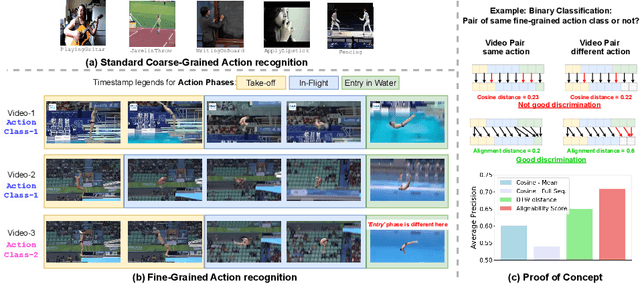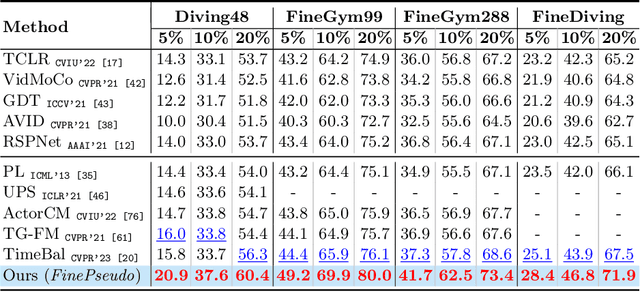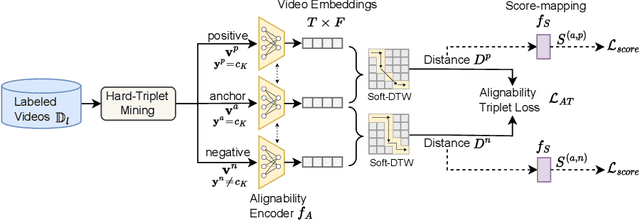FinePseudo: Improving Pseudo-Labelling through Temporal-Alignablity for Semi-Supervised Fine-Grained Action Recognition
Paper and Code
Sep 02, 2024



Real-life applications of action recognition often require a fine-grained understanding of subtle movements, e.g., in sports analytics, user interactions in AR/VR, and surgical videos. Although fine-grained actions are more costly to annotate, existing semi-supervised action recognition has mainly focused on coarse-grained action recognition. Since fine-grained actions are more challenging due to the absence of scene bias, classifying these actions requires an understanding of action-phases. Hence, existing coarse-grained semi-supervised methods do not work effectively. In this work, we for the first time thoroughly investigate semi-supervised fine-grained action recognition (FGAR). We observe that alignment distances like dynamic time warping (DTW) provide a suitable action-phase-aware measure for comparing fine-grained actions, a concept previously unexploited in FGAR. However, since regular DTW distance is pairwise and assumes strict alignment between pairs, it is not directly suitable for classifying fine-grained actions. To utilize such alignment distances in a limited-label setting, we propose an Alignability-Verification-based Metric learning technique to effectively discriminate between fine-grained action pairs. Our learnable alignability score provides a better phase-aware measure, which we use to refine the pseudo-labels of the primary video encoder. Our collaborative pseudo-labeling-based framework `\textit{FinePseudo}' significantly outperforms prior methods on four fine-grained action recognition datasets: Diving48, FineGym99, FineGym288, and FineDiving, and shows improvement on existing coarse-grained datasets: Kinetics400 and Something-SomethingV2. We also demonstrate the robustness of our collaborative pseudo-labeling in handling novel unlabeled classes in open-world semi-supervised setups. Project Page: https://daveishan.github.io/finepsuedo-webpage/.
 Add to Chrome
Add to Chrome Add to Firefox
Add to Firefox Add to Edge
Add to Edge